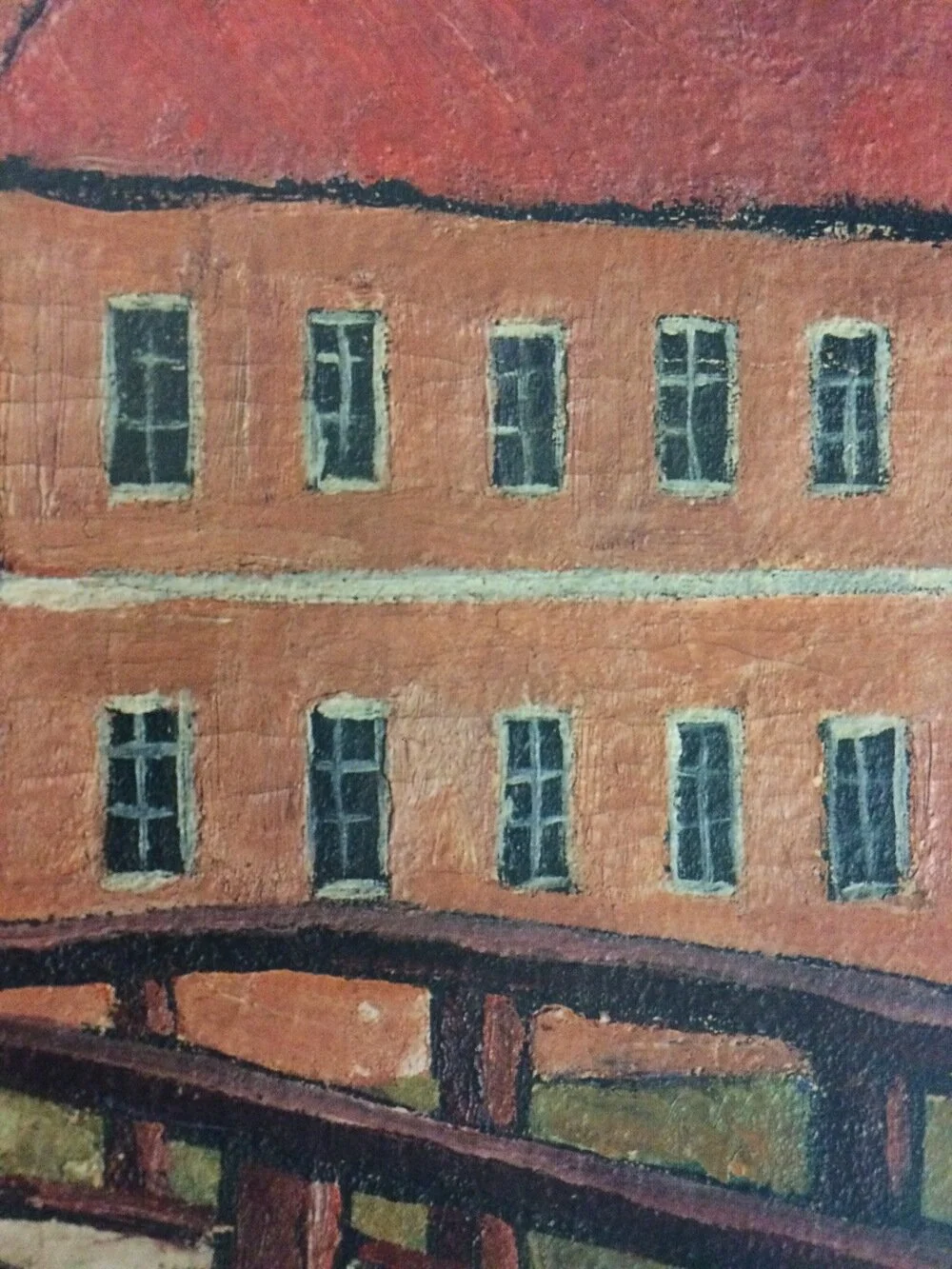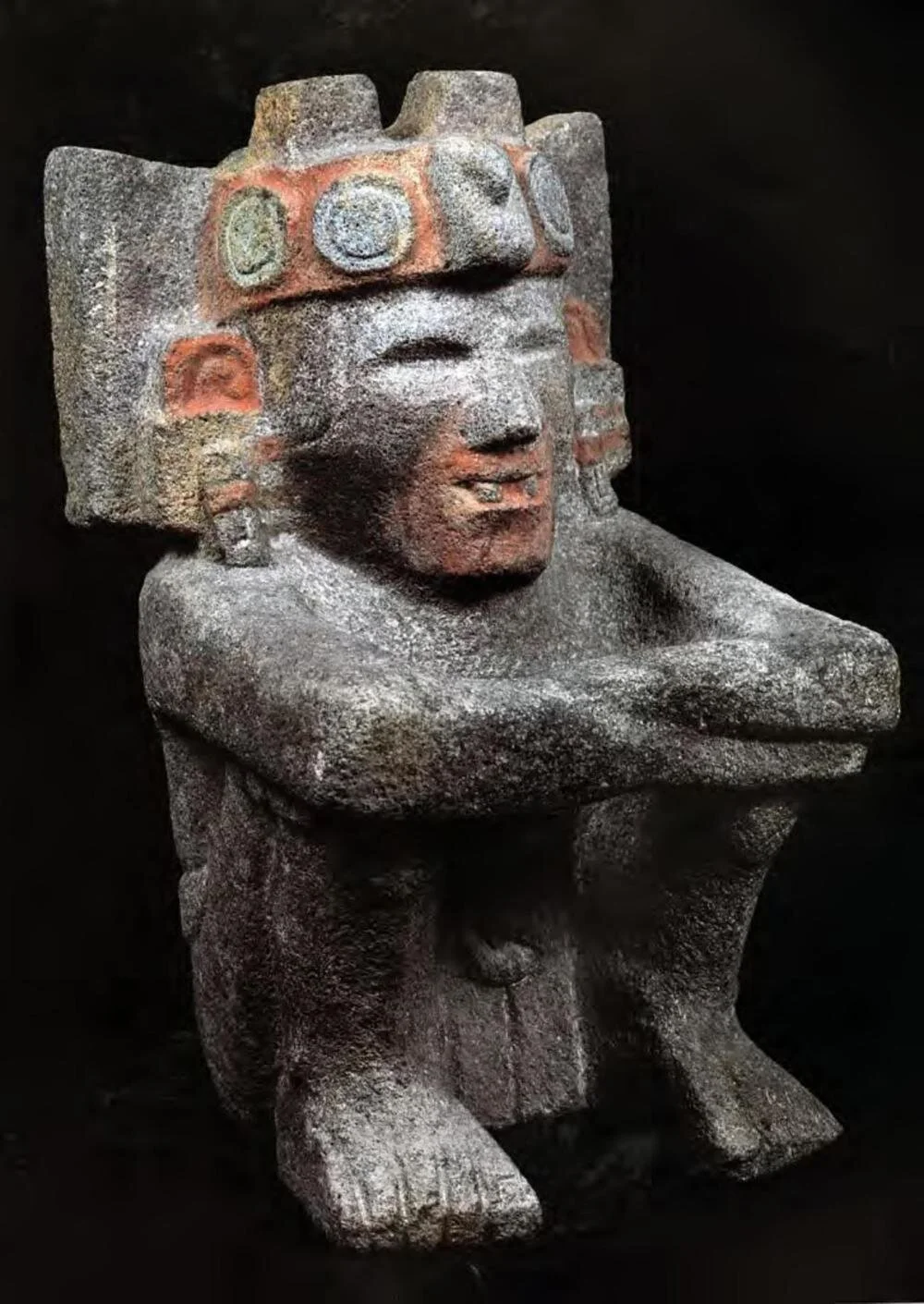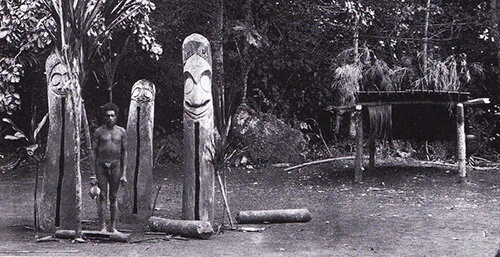LIUBOV POPOVA
Born 24 April 1889
"The Cubist period (the problem of form) is followed by the Futurist period (the problem of motion and color); the principle of the abstraction of the parts of an object is followed with logical inevitability by the abstraction of the object itself. This is the road to nonobjectiveness. The representational problem is followed by the problem of the construction of color and line (Post-Cubism) and of color (Suprematism)." - Popova
"O.10" exhibition in Petrograd / Malevich's Suprematist Compositions / Popova's first opportunity to view these works was at this exhibition, where she herself showed a series of Cubo-Futurist paintings. She and Malevich were not on friendly terms; she was much more in the orbit of Tatlin, who, as we know, feuded with Malevich
MALEVICH v. TATLIN
PART ONE: PAINTING
Ivanovskoe, Bridge (detail), 1908, oil on canvas, 19 1/8 x 15 1/8 inches. Private Collection, Moscow.
Landscape with Female Figures (detail), 1908, oil on canvas, 13 6/8 x 17 1/8 inches. Private Collection, Moscow.
Cover design for 6 Prints, 1917, color linocut, 13 x 8 7/8 inches.
Plate from 6 Prints (detail), 1917, color linocut, 13 3/4 x 10 1/4 inches.
Plate from 6 Prints (detail), 1917, color linocut, 13 3/4 x 10 1/4 inches.
Painterly Architectonics (detail), 1918, oil on canvas, 22 7/8 x 22 1/8 inches, Costakis Collection, Athens.
Spatial Force Construction (detail), 1921, oil and metal dust on plywood, 27 1/2 x 20 1/4, Tretiakov Gallery.
PART TWO: THEORY, TEACHING, THEATER AND DESIGN
The Revolution brought radical change to the entire spectrum of artistic life. Before this Popova has seen herself as the classic easel painter immersed in problems of craft and artistry, living the concerns and problems of her artistic circle, her milieu. Under the new conditions, the status of private life, of living-room debates, and of informal communication took a sharp plunge. The private market for artistic production vanished. The collectors scattered. A new type of artist - the artist as civil servant - was born. Artists were assigned to staging political and social events; a network of art schools and educational institutions grew up despite the harsh economic circumstances; and finally, research institutes, something hitherto unheard-of, were created to study living artistic practice.
Both the artist's altered social position and the very nature of her work - her teaching and research jobs, which were utterly new for her - required new forms of artistic activity: research and theoretical formulations.
The Principle of EXPEDIENCY - - - the degree to which a form attains its goal through the appropriate use of material
{End on 212}
Much I have excerpted from various sources.
Please note that I do not own the copyright to most of the texts, images, or videos.









